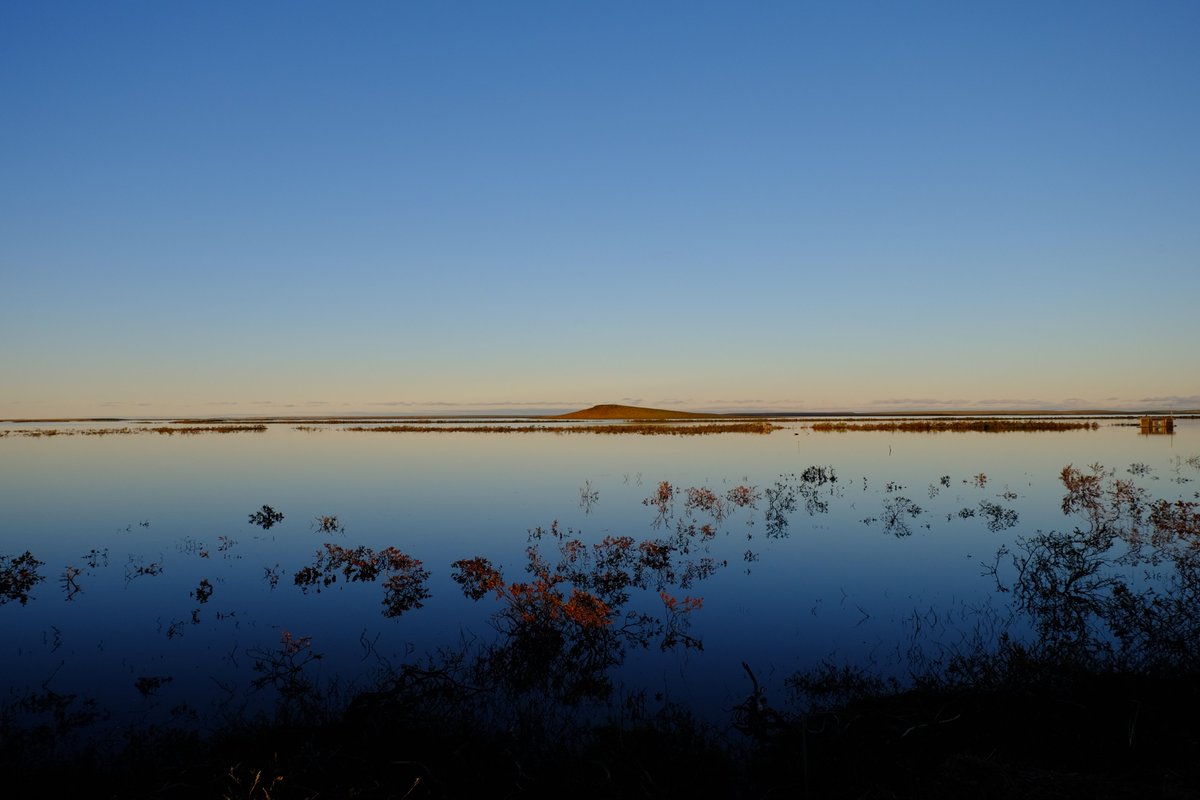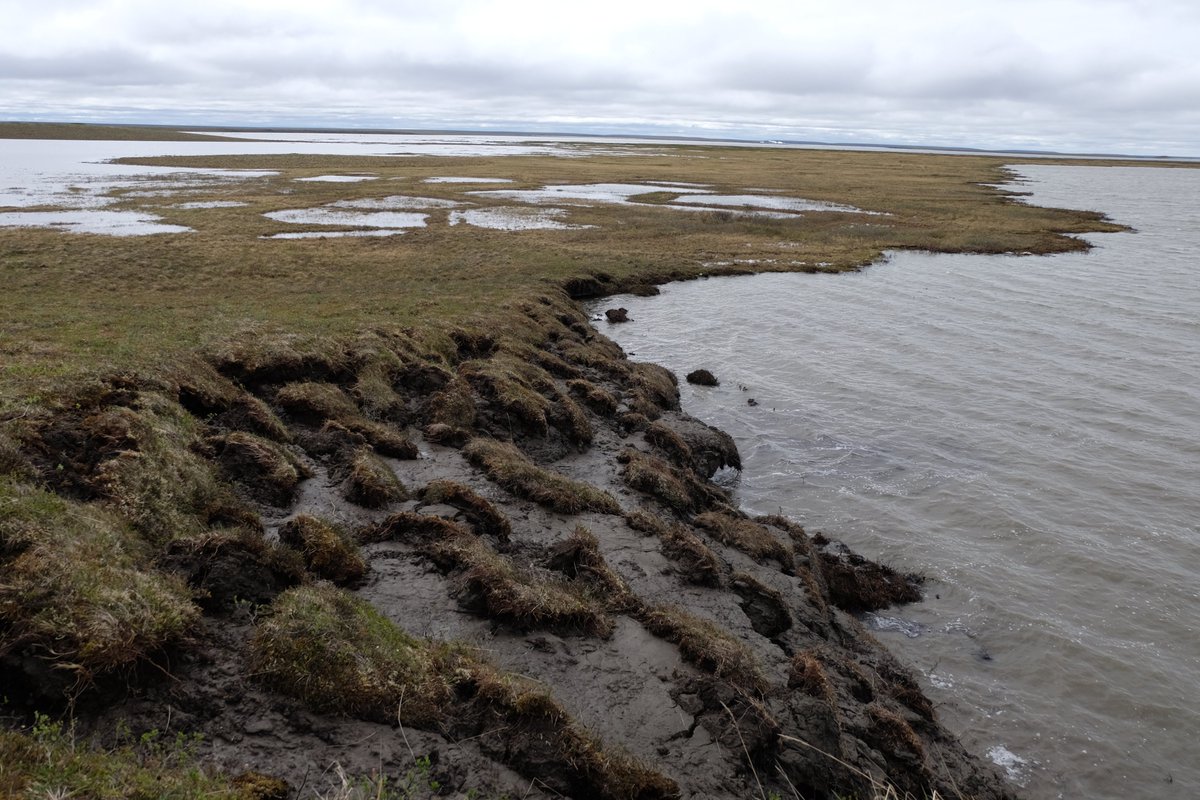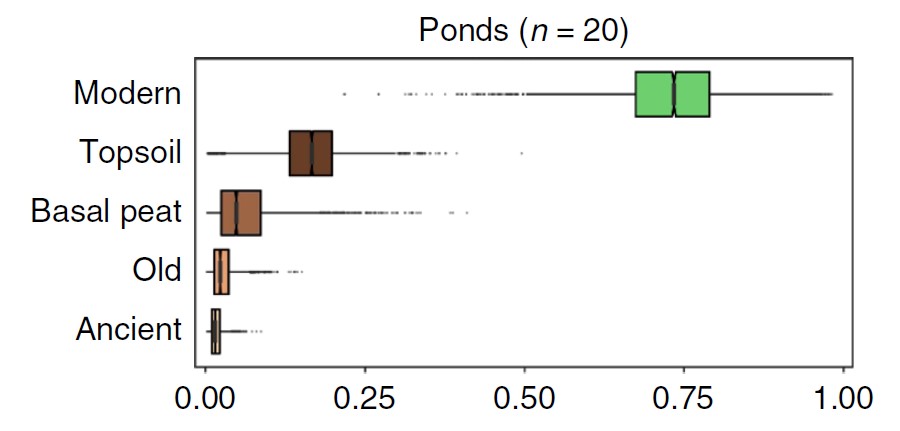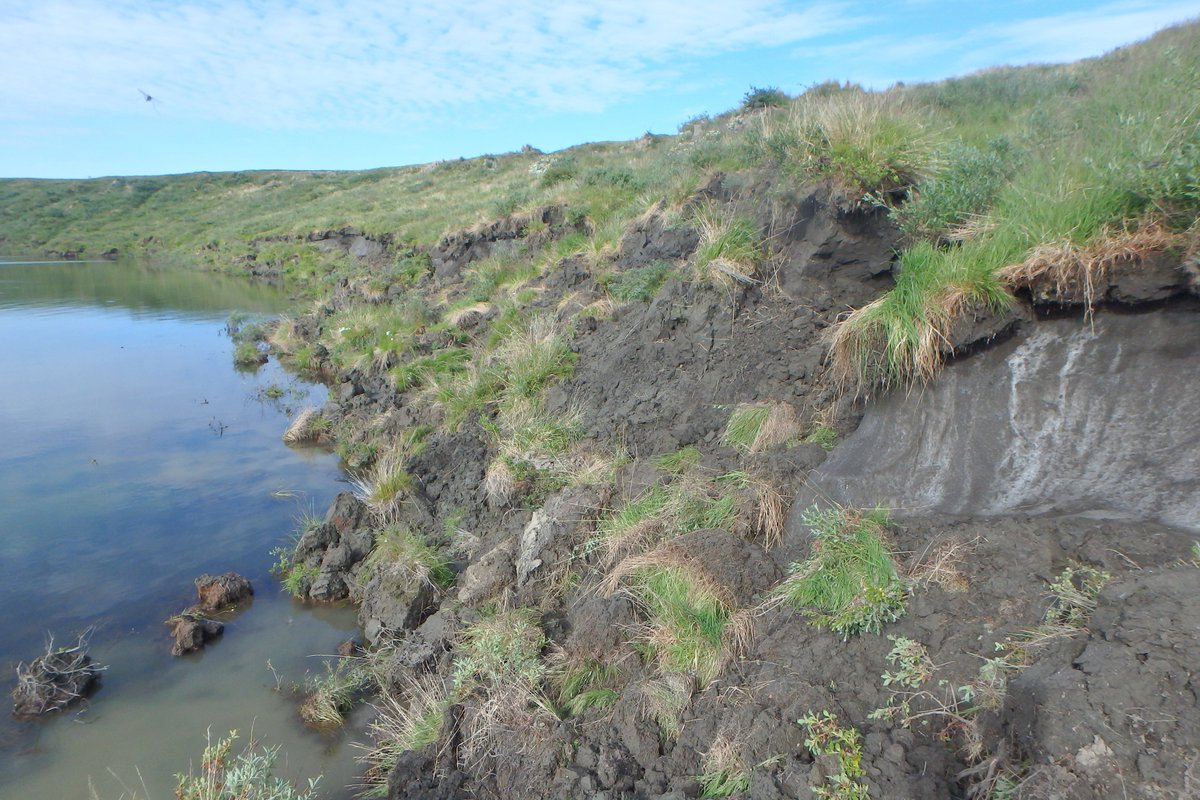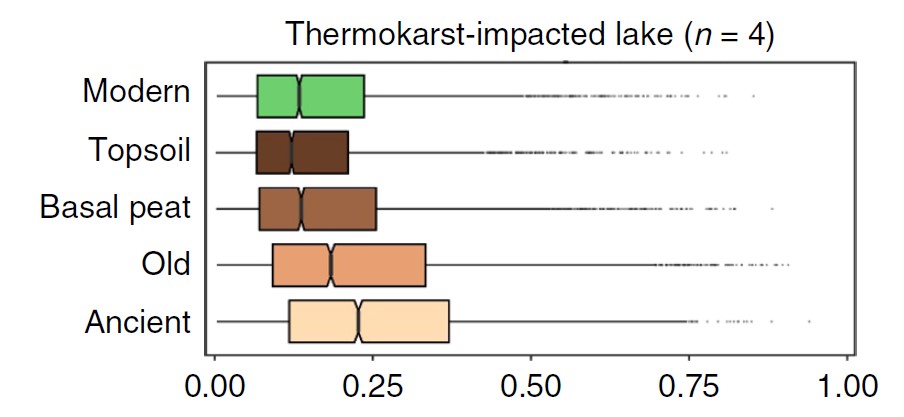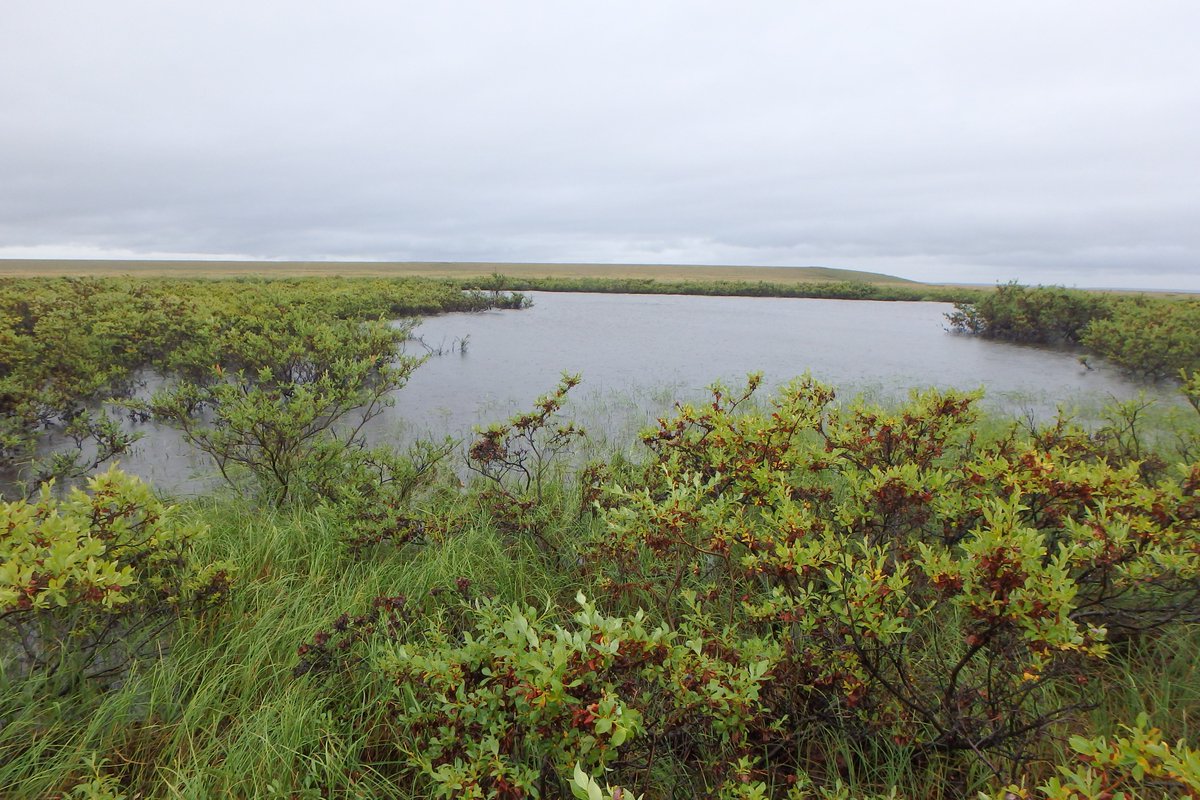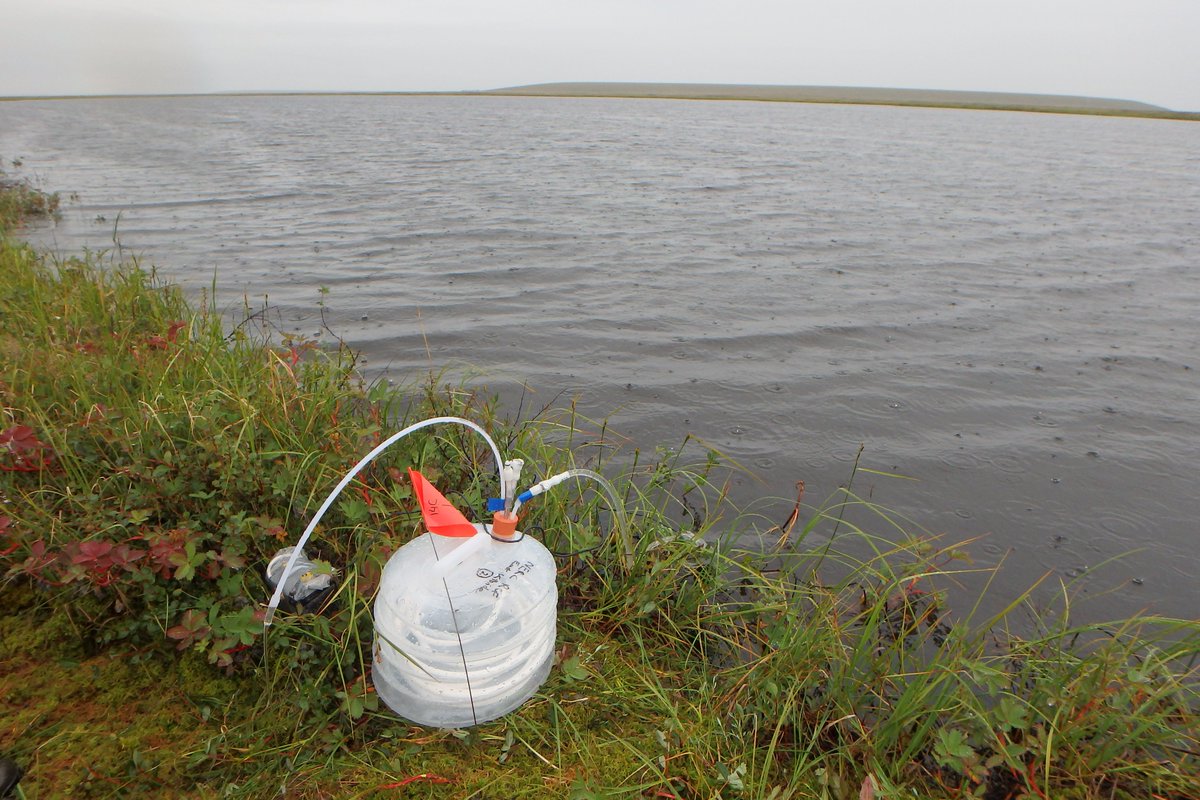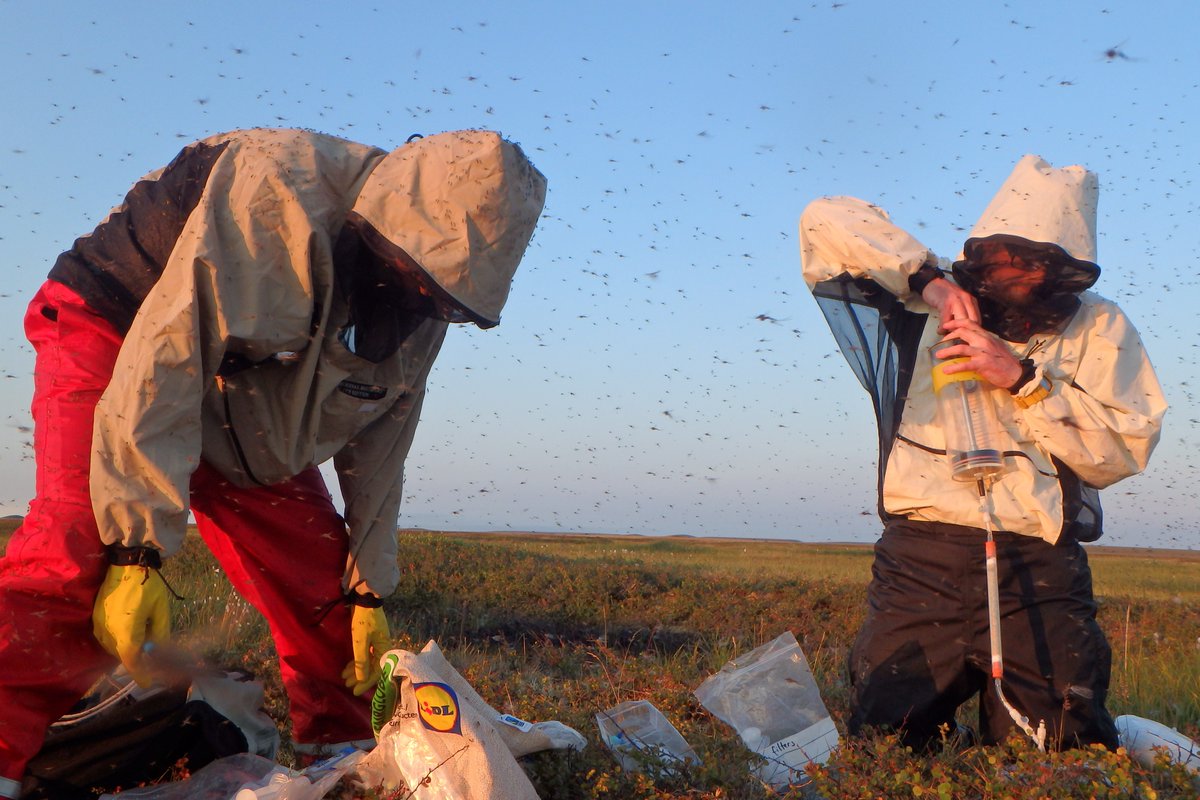https://www.nature.com/articles/s41467-020-15511-6
Very">https://www.nature.com/articles/... pleased to share our new paper published today in @NatureComms
"East Siberian Arctic inland waters emit mostly contemporary carbon"
A short #thread on what this could mean...
#Arctic #ClimateChange #Radiocarbon #CO2 #methane
Very">https://www.nature.com/articles/... pleased to share our new paper published today in @NatureComms
"East Siberian Arctic inland waters emit mostly contemporary carbon"
A short #thread on what this could mean...
#Arctic #ClimateChange #Radiocarbon #CO2 #methane
Inland waters (lakes, rivers, ponds) can be important sites of terrestrial carbon processing and #greenhouse gas emissions, especially in wetlands such as those found in the Arctic and Tropics
These inland waters are closely linked to terrestrial carbon cycling, and so carry signals of change in their surrounding landscapes. One way to identify change is with the isotope #Radiocarbon
Where very old carbon is released this will have a distinctly aged radiocarbon signal, for example from thawing permafrost which can hold carbon that is over 50,000 years old in parts of Siberia and Alaska...
We can use radiocarbon ages to estimate contributions from different soil layers (proportional contribution on x-axis).
In shallow ponds, we see that most of the carbon was from modern organic matter:
In shallow ponds, we see that most of the carbon was from modern organic matter:
In a lake which was eroding into very old permafrost that was over 50,000 years old (called Yedoma), we clearly see a much older signal:
But we didn& #39;t see any increase in carbon dioxide and methane emissions where older carbon was being released from thawing permafrost. In fact, we saw the opposite. Inland waters with higher carbon concentrations tended to be younger
The greenhouse gases CO2 and methane were younger than the organic matter in the same waters, meaning that carbon emissions are fuelled primarily by contemporary carbon rather than older carbon
Previous studies have suggested that very old carbon is preferentially decomposed by microbes... our new study suggests this may just be because of the limited availability of younger carbon in those systems, because we show contemporary carbon is also rapidly decomposed
Our findings reveal that inland water carbon emissions from permafrost landscapes may be more sensitive to changes in contemporary carbon turnover than the release of old carbon from thawing permafrost
A special thanks to all my brilliant co-authors for their support in getting this study published! @poolvonk @han_dolman @kovanhuissteden et al.

 Read on Twitter
Read on Twitter
